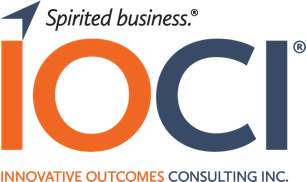
These are indeed unprecedented times.
It’s no surprise that during these times, a number of approaches to leadership have emerged, creating a critical opportunity to consider what successful leadership should like in 2020 and what steps are needed to stay current. After all, leadership models do change over time and in response to the needs of those times.
Even before the COVID-19 crisis, there were many indicators that leadership was shifting toward a model that focuses on growth, innovation and positive social impact. According to a recent study from the World Economic Forum in collaboration with Accenture, corporations that use a stakeholder-centric and socially responsible approach to leadership are more profitable than organizations that are otherwise focused.
The report, “Seeking New Leadership,” is based on surveys of more than 20,000 people, including emerging leaders from the World Economic Forum’s Young Global Leaders and Global Shapers communities; CEOs and other business leaders; and employees, consumers and other stakeholder groups — as well as an econometric analysis of company performance and other original research.
The report highlights the growing demand for businesses to address environmental, social and economic issues in return for their “license to prosper.” For example, six in 10 (61%) of the emerging leaders surveyed said that business models should be pursued only if they improve both societal outcomes and profitable growth. Further, the vast majority of both business leaders (79%) and stakeholders (73%) said that the positive potential of emerging technology calls for businesses to reconsider their role in society. This outlook is even more relevant today than before the Coronavirus. There are many examples of companies stepping up to help our nation innovate its way through the obstacles to both protect our population and reduce the impact of the virus.
“Even Custom Ink, the company that produces T-shirts with our logo, has shifted its manufacturing to producing facemasks for its clients,” says Marialane Schultz, CEO of IOCI. “It’s remarkable how folks are working together to solve the problems around them.”
According to the study mentioned above, many business executives are often out of step with stakeholders who want leaders with more “Emotion & Intuition, and Mission & Purpose,” as described in the list of leader attributes below.
Findings from an online focus group of more than 500 people from Generation Y and Generation Z (people born since 1980) conducted as part of the research also suggest that younger people believe leadership decisions in the coming decade will require a balanced approach across all five attributes of responsible leadership.
Schultz believes this imperative has been accelerated by the rapid rise of COVID-19, which has resulted in a call for focused leadership and coordinated collective action for the benefit of society as a whole.
The study also notes that profits and responsible leadership needn’t be mutually exclusive; in fact, it finds a link between responsible leadership and higher financial performance. As part of the research, Accenture examined the financial performance and actions related to sustainability, stakeholder trust and innovation of more than 2,500 publicly listed companies between 2015 and 2018.
A key finding: Companies that achieve high levels of both innovation and stakeholder trust outperform their industry peers financially — with an average of 3.1% higher operating profits as well as greater returns for shareholders. In addition, companies that achieve industry-leading innovation, stakeholder trust and financial performance display all five elements of responsible leadership to a greater extent than do their peers.
“The world is facing significant challenges with social equity, climate change and human well-being. These conditions require a very different approach to leadership,” CEO Schultz says. “Leaders must scale up innovation, adopt a stakeholder-centric approach to leading and realize that their role can either drive solutions to the biggest challenges the world is facing, including COVID-19, or contribute to worsening them.”
With an eye on the future, it’s also crucial for socially responsible leaders to attract the next generation of leaders by understanding and aligning with their values. “Emerging leaders want more balance between profit and positive social outcomes,” Schultz adds.
Emerging leaders want more balance between profit and positive social outcomes
The study identifies five critical elements at the heart of this new responsible leadership model that focus on strong organizational performance in concert with positive social and environmental impact.
Tackling the challenges we’re experiencing now and those of the coming decade will require our collective focus to accelerate growth and improve societal outcomes, and will require a wider range of attributes and characteristics from leaders, which the study identifies as:
- Stakeholder Inclusion. Safeguarding trust and positive impact for all by standing in the shoes of diverse stakeholders when making decisions and fostering an inclusive environment in which diverse individuals have a voice and feel they belong.
- Emotion & Intuition. Unlocking commitment and creativity by being truly human, showing compassion, humility and openness.
- Mission & Purpose. Advancing common goals by inspiring a shared vision of sustainable prosperity for the organization and its stakeholders.
- Technology & Innovation. Creating new organizational and societal value by innovating responsibly with emerging technology.
- Intellect & Insight. Finding ever-improved paths to success by embracing continuous learning and knowledge exchange.
This new model is not only a key business imperative for our times but highlights a clear and compelling need for the kind of leadership that will both improve organizational performance and enhance social outcomes.
“Our national leaders and organizations around the world need to raise awareness of and establish a battle cry for a holistic approach to governance that includes growth, profitability, good environmental hygiene and positive social outcomes,” Schultz says. “They can do this by establishing overarching values in their organizational strategy that drive leaders’ obligation to build a better, more profitable organization while strengthening our communities.”
Marialane Schultz is the founder of IOCI. She helps individuals and organizations perform at their best, do meaningful work and be impactful through customized coaching and consulting engagements.

